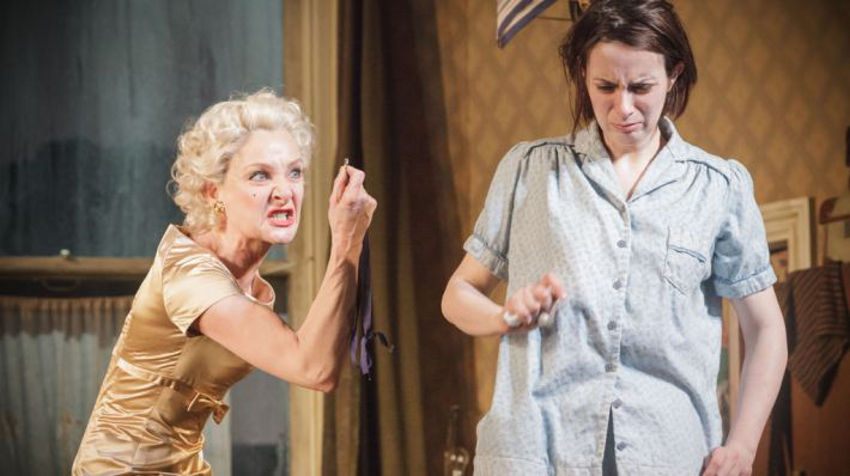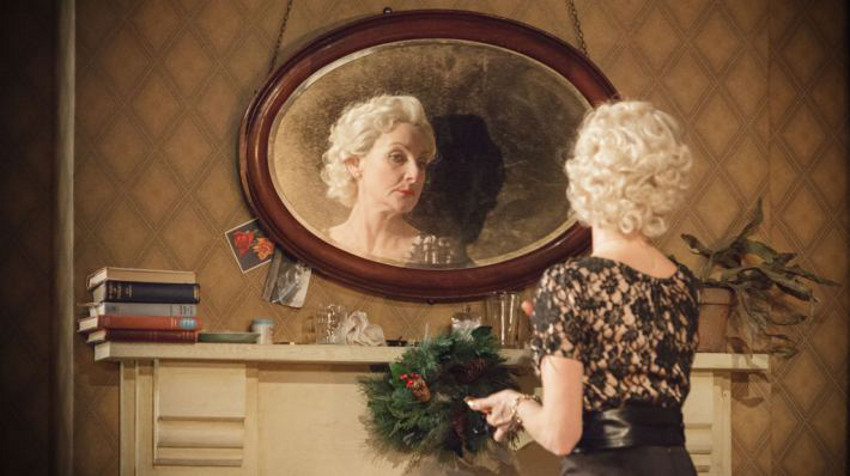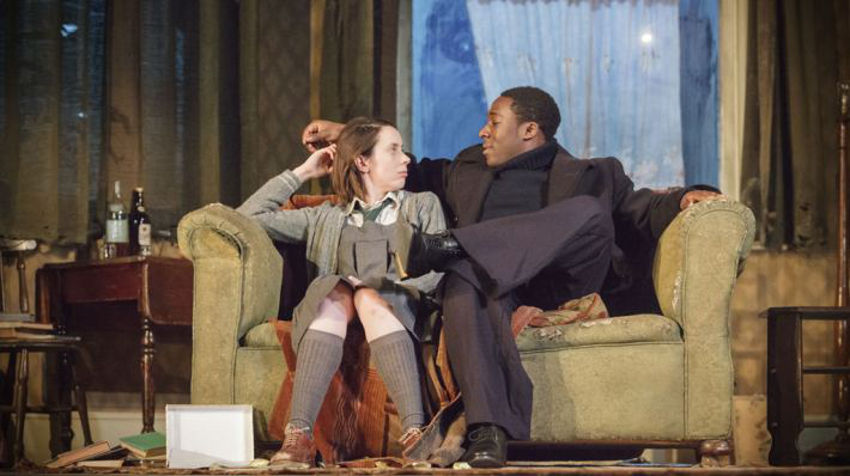When A Taste of Honey was first performed in 1958, it shocked in two ways. Firstly, it addressed some of the most sensitive taboos of the time (alcoholism, inter-racial relationships, homosexuality, abortion, single-parenthood, child-bearing out of wedlock, to name a few), all set in the working class North and offering little respite from its gritty, grey and painfully harsh reality. Secondly, and just to confound things, the writer was not some seasoned playwright of credentials or acclaim, nor one of the fashionable ‘Angry Young Men’ of the moment (such as Philip Larkin or Kingsley Amis) but one Shelagh Delaney, a 19-year-old woman giving her first play a bash. Critics were not kind to the audacity of this girl, whose social commentary provided an honest and ugly account of life in suburban Manchester (she had grown up in Salford) using sharp, sometimes undignified language that depicted a most poisonous relationship between mother and daughter, defying every conservative image of domestic bliss in Fifties Britain.

Delaney introduces us to the flighty, self-absorbed Helen, a single mother with a weakness for smooth-talking men and a dependency on her whisky bottle. She is a more solemn incarnation of Ab Fab’s Edina Monsoon – devoid of maternal affection and yet secretly attached to her long-suffering daughter, desperate for attention, blindly idealist – and although her immaturity can amuse, so too is it poignantly pathetic. And obnoxious. Bearing the brunt of Helen’s whims is her teenage daughter, Jo, who falls pregnant to a black sailor and is then looked after in her ‘state’ by a gay art student, much to the dismay of her mother and her latest, predictably vile husband. Jo is at times the screaming opposite of her erratic mother and, at others, a chip off the old block. Their relationship is one of necessity, not affection, and their verbal sparring is grotesquely unforgiving, Whether or not there is love lost between them is ultimately left in contention.
Directed by Bijan Sheibani at The National Theatre, Lesley Sharp excels as the petulant Helen. Her coldness is interspersed with airy-fairy turns where she prances around, arms floating in the air, utterly entranced by her own delusions; at one point she can but scream out loud with sheer, girlish excitement, when words and any decorum abandon her. The many layers to this embittered character are deftly peeled off by Sharp, making her tragic, hilarious and insufferable all at once.

Kate O’Flynn gives a powerful performance as poor old Jo. The role requires a strange mix of teenaged stubbornness, youthful hope, fear and empowerment, to portray a girl who has had to grow up before her time but still lacks the emotional maturity that a more wholesome upbringing might have afforded. The battle between these two sides to the character is most apparent throughout her pregnancy, when she struggles to look after herself as any adult would, and yet handles the predicament she finds herself in with admirable bravery. O’Flynn at times over-eggs the gawkiness of this girl, but that does help to remind the audience of her youth, and in fact makes her rather endearing. Her total apathy towards her own looks or well-being compared to her mother’s vanity sees her goofily dancing along to the incidental jazz music (part of the impressive overall sounds provided by Paul Englishby) and her moods are infectious – whether gleeful or disheartened, the audience shares her journey, and the performance must be exhausting.
The supporting men are all excellent but their characters are one-dimensional compared to the women. Dean Lennox Kelly is slimy and menacing as the eye-patched Peter, who woos Helen with a series of back-handed compliments. And Harry Hepple is charming as Geoff, the kind and willing student who takes care of Jo, only to be ousted by her jealous mother when her own marriage fails to live up to expectations.
Hildegard Bechtler’s design places you in the grimy backstreets in an instant. The set revolves to display every side of the dingy little flat that the women share, and with Englishby’s street noises in the background, one forgets the Lyttleton Theatre for the misery of outer Manchester way back when.

Watching A Taste of Honey today, the issues it deals with are particularly striking since it is evident that British society has, generally, reached a point of sophistication sufficient to make these former attitudes laughable; much of this play should not be funny (you certainly wouldn’t be laughing if you had to live any of it out) but one finds oneself guffawing at the opinions voiced, in slightly awkward astonishment at our former collective narrow-mindedness. It also makes one conscious of any residual prejudice in the modern world, and perhaps concerned for whatever the taboo is in this day and age that is simply accepted as justified opinion for the moment – how will future generations look back on us? It is an unnerving thought but one for which we should thank Shelagh Delaney, the passionate young girl who sent her first manuscript to Joan Littlewood for advice. Littlewood was ultimately crucial in the play’s success, directing it at Theatre Royal Stratford East before it transferred to the West End. It was even made into a film in 1961 but sadly, was Delaney’s one main hit.
A Taste of Honey will not leave you feeling inspired, nor uplifted, nor particularly optimistic about the world, but it is an astute and shrewdly crafted work of observation. At around three hours, Bijan Sheibani’s production is very worthwhile sticking to; with cracking performances and some thoughtful touches, this brings out both the humour and drudgery of its subjects’ lives with care and vitality.
A Taste of Honey at the National Theatre, currently booking until 11th May 2014. For more information and tickets, visit the website.



